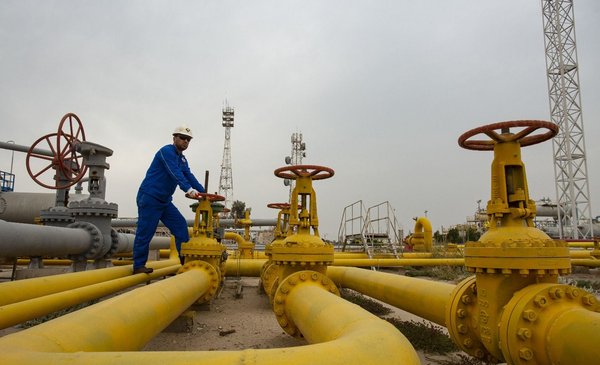The governments of Spain and Portugal enthusiastically received the declarations made on Friday by the German Chancellor, Olaf Scholz, in favor of a gas pipeline connecting the Iberian Peninsula with Central Europe, in a context of energy crisis due to the war in Ukraine.
This gas pipeline is “a priority” for Portugal and Scholz’s position “reinforces the pressure on European institutions” to advance this project, Portuguese Prime Minister Antonio Costa told reporters. “Portugal can play an important role” in making Europe “autonomous in energy matters” from Russia, Costa said.
On her side, the Spanish Minister for the Ecological Transition, Teresa Ribera, declared on public television TVE that Spain is willing to move forward quickly in the construction of said gas pipeline, but advocated “greater involvement of community institutions.”
The German chancellor estimated on Thursday that an interconnection was needed between the Iberian Peninsula and central Europe, passing through France, which would help “relieve and relax the supply situation” of gas.
Minister Ribera indicated that in “two months, three months”, Spain could “provide between 2 and 2.5% of the gas that can be consumed in the European Union as a whole” by installing “an additional compressor” to the two small gas pipelines that connect Spain with France through the Basque Country (northwest of Spain). But “the main need is for France to be in a position to transfer that gas to the center of Europe,” she said.
Enagás, the operator of the Spanish gas network, estimates that a gas pipeline through the Pyrenees, between Spain and France, could be operational in 8 or 9 months, Ribera said. France, however, cooled expectations.
“A project of this type, in any case, would take many years to be operational” and “therefore, it would not respond to the current crisis”, indicated the Ministry of Energy Transition.
The proposed gas pipeline would be similar to MidCat, a project launched in 2013 to link Portugal, Spain and France, but abandoned due to criticism from environmental organizations and a lack of financial commitment from France. The Russian invasion of Ukraine has made the possibility of such a connection regain importance.
A source with knowledge of the project told AFP that what Ribera described “would be a different project” from MidCat, in particular because it would also include “hydrogen transport.” Given the infrastructure already built in Catalonia before the MidCat was abandoned, “about 100 kilometers would remain to be done” to reach France, according to the source.
Enagás plans to invest some US$380 million in the project if the EU gives the green light.
AFP Source







